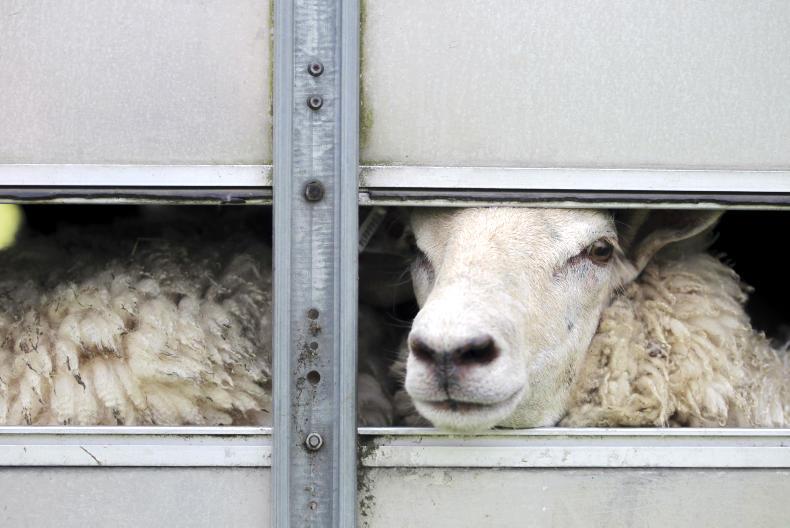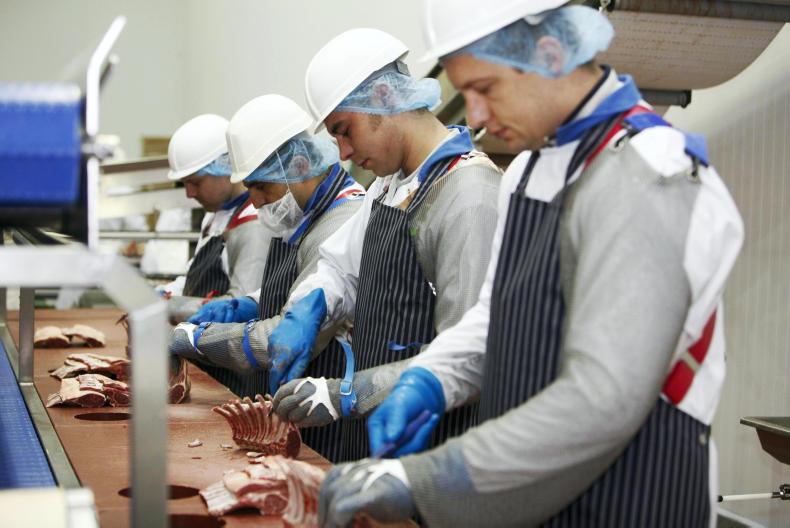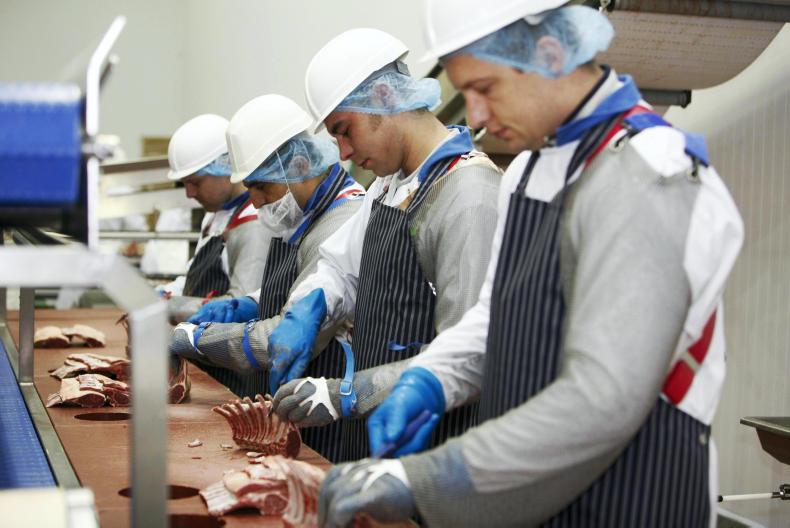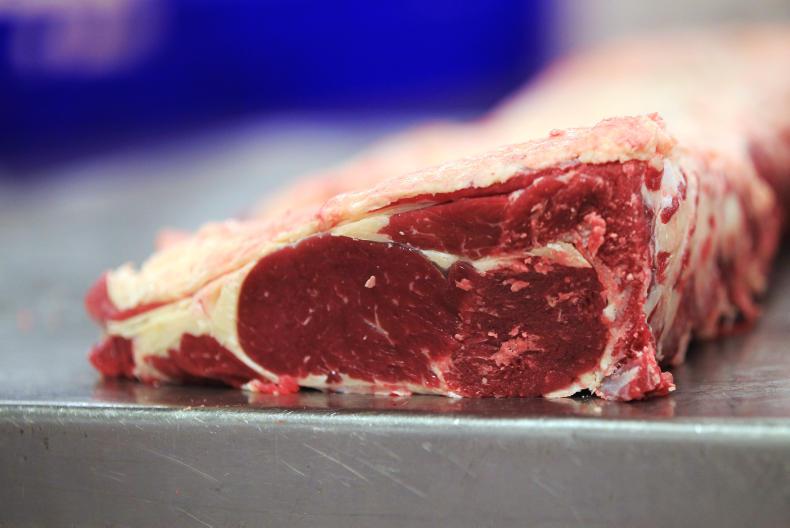Factories are trying hard to lower farmers’ expectations for this week with the passing of the Eid al-Adha festival.
Prices paid earlier in the week were on par to last week at €4.85/kg to €4.90/kg, but as the week progressed, prices paid ranged from €4.75/kg to €4.80/kg. Farmers with larger numbers of in-spec lambs and producer groups are securing higher prices of €4.85/kg to €4.90/kg.
The sheep kill, as expected, was very strong at a total of 71,570 head and large numbers of lambs were exported live for the Muslim festival. Many farmers aimed to supply lambs for this trade last week, which should lead to a tightening in supply of slaughter-fit lambs over the next few days.
Farmers are trying to resist any downward pressure now, despite most factories talking down the trade. Ballon Meats and Moyvalley Meats all-in quotes remain unchanged at €4.80/kg. However, base quotes in the main export plants have reduced by 10c/kg to 20c/kg respectively.
Kildare Chilling has a base quote of €4.60/kg, excluding bonus payments, and both Irish Country Meats plants are bottom of the quotes at €4.50/kg, excluding bonus payments. Many agents say they will have a better handle on prices by Friday once they overcome the festival lamb hangover.
IFA national sheep committee chair John Lynskey attended a meeting of the Franco-Irish sheep club last week in Paris. He said that domestic ewe numbers in France are down 2% and the lamb kill is up 5% so far this year. He said this reduction in domestic supplies could lead to a tightening of domestic French lamb for the remainder of this year, leading to a greater dependence on lamb imports.
Northern trade
In the North, base quotes have also fallen. Dunbia Dungannon has a base quote of £3.80/kg, down 15p/kg on last week. Linden Foods has a base quote of £3.75/kg, down 15p/kg on last week. However, similar to the south, higher prices are being paid closer to last week’s levels.
The number of sheep exported to the south increased by a massive 2,655, to a total of 12,089 head. This shows the importance of northern lamb imports for southern plants.
Read more
No change wool markets
Sheep management notes
Factories are trying hard to lower farmers’ expectations for this week with the passing of the Eid al-Adha festival.
Prices paid earlier in the week were on par to last week at €4.85/kg to €4.90/kg, but as the week progressed, prices paid ranged from €4.75/kg to €4.80/kg. Farmers with larger numbers of in-spec lambs and producer groups are securing higher prices of €4.85/kg to €4.90/kg.
The sheep kill, as expected, was very strong at a total of 71,570 head and large numbers of lambs were exported live for the Muslim festival. Many farmers aimed to supply lambs for this trade last week, which should lead to a tightening in supply of slaughter-fit lambs over the next few days.
Farmers are trying to resist any downward pressure now, despite most factories talking down the trade. Ballon Meats and Moyvalley Meats all-in quotes remain unchanged at €4.80/kg. However, base quotes in the main export plants have reduced by 10c/kg to 20c/kg respectively.
Kildare Chilling has a base quote of €4.60/kg, excluding bonus payments, and both Irish Country Meats plants are bottom of the quotes at €4.50/kg, excluding bonus payments. Many agents say they will have a better handle on prices by Friday once they overcome the festival lamb hangover.
IFA national sheep committee chair John Lynskey attended a meeting of the Franco-Irish sheep club last week in Paris. He said that domestic ewe numbers in France are down 2% and the lamb kill is up 5% so far this year. He said this reduction in domestic supplies could lead to a tightening of domestic French lamb for the remainder of this year, leading to a greater dependence on lamb imports.
Northern trade
In the North, base quotes have also fallen. Dunbia Dungannon has a base quote of £3.80/kg, down 15p/kg on last week. Linden Foods has a base quote of £3.75/kg, down 15p/kg on last week. However, similar to the south, higher prices are being paid closer to last week’s levels.
The number of sheep exported to the south increased by a massive 2,655, to a total of 12,089 head. This shows the importance of northern lamb imports for southern plants.
Read more
No change wool markets
Sheep management notes










SHARING OPTIONS